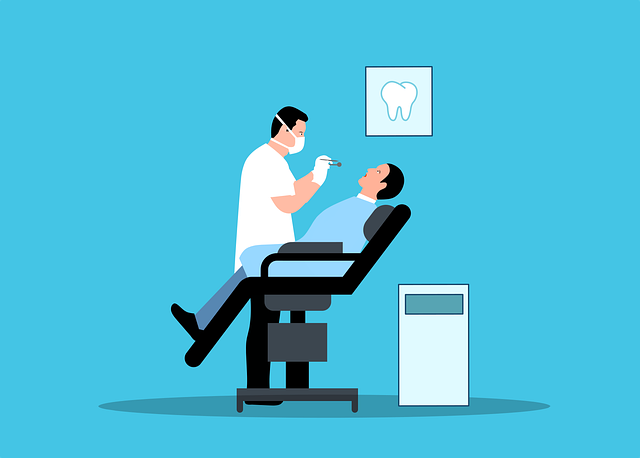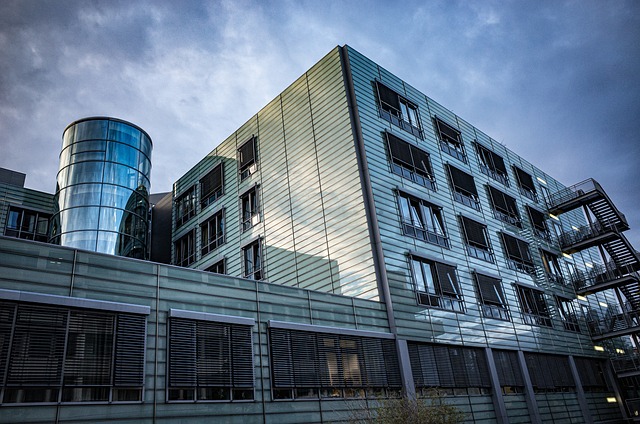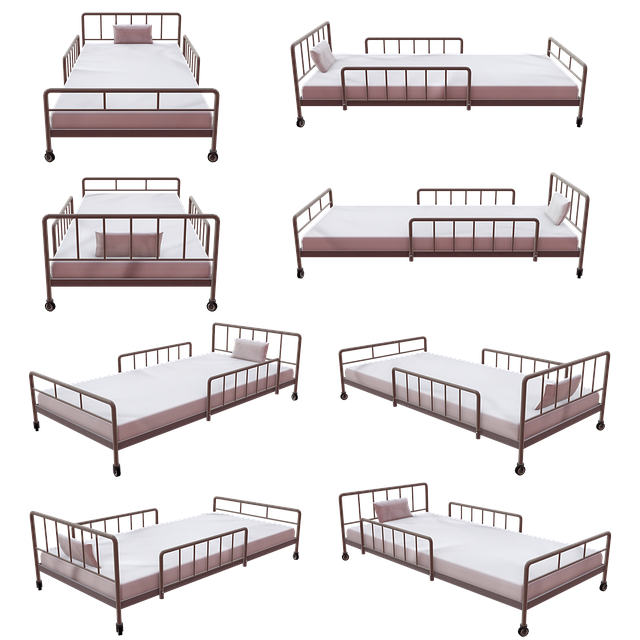In regenerative medicine, advanced imaging technology and non-invasive diagnostics are revolutionizing patient care. Tools like MRI, ultrasound, and CT scans offer high-resolution visualizations of tissues, enabling accurate assessment of intricate microstructural changes during regeneration. These techniques, including precision imaging, provide real-time data on tissue health, inflammation, and vascularization, facilitating personalized treatment plans tailored to individual patient needs. By enhancing diagnostic accuracy and optimizing clinical outcomes, regenerative imaging services significantly improve the effectiveness and success rates of regenerative therapies.
In the rapidly evolving field of regenerative therapies, accurate assessment is paramount for optimal patient outcomes. This article explores the crucial role of advanced imaging technology and non-invasive diagnostics in driving regenerative medicine forward. We delve into precision imaging techniques that unlock the potential of medical imaging tools, discuss integrating these diagnostic innovations into clinical practice, and highlight how effective regenerative diagnostic services enhance overall patient care. By leveraging cutting-edge technologies, healthcare professionals can navigate the complex landscape of regenerative treatments with newfound confidence.
- Understanding the Need for Accurate Assessment in Regenerative Therapies
- The Role of Advanced Imaging Technology and Non-Invasive Diagnostics
- Precision Imaging: Unlocking the Potential of Medical Imaging Tools
- Integrating Diagnostic Tools into Regenerative Medicine Practices
- Enhancing Patient Outcomes through Effective Regenerative Diagnostic Services
Understanding the Need for Accurate Assessment in Regenerative Therapies

In the realm of regenerative therapies, understanding and accurately assessing tissue health is paramount to achieving successful outcomes. Regenerative medicine aims to restore and regenerate damaged or diseased tissues, and this process heavily relies on precise diagnostic tools to guide treatment decisions. Traditional diagnostic methods often fall short in evaluating the intricate microstructural changes that occur during regeneration, leading to potential challenges in patient management.
Advanced imaging technologies, such as regenerative imaging techniques, play a crucial role in filling this gap. Non-invasive diagnostics like precision imaging and medical imaging tools enable healthcare professionals to visualise tissue architecture, track cell behaviour, and assess vascularisation—all vital aspects for determining the efficacy of regenerative treatments. These innovative diagnostic services not only enhance the accuracy of assessments but also provide a more comprehensive understanding of the patient’s condition, ultimately facilitating personalised medicine approaches in regenerative therapy.
The Role of Advanced Imaging Technology and Non-Invasive Diagnostics

The advancements in advanced imaging technology and non-invasive diagnostics have revolutionized the landscape of regenerative medicine. These cutting-edge tools play a pivotal role in ensuring accurate assessment and optimal outcomes for patients undergoing regenerative therapies. Precision imaging techniques, such as magnetic resonance imaging (MRI), ultrasound, and computed tomography (CT) scans, offer detailed visualizations of tissues, organs, and blood vessels, enabling healthcare professionals to pinpoint areas requiring regeneration with remarkable accuracy.
Non-invasive diagnostics further enhance the precision of regenerative treatments by providing real-time data on tissue health, inflammation, and vascularization. Advanced imaging modalities, coupled with innovative diagnostic services, allow for personalized medicine approaches, where treatments can be tailored to individual patient needs. This not only improves the effectiveness of regenerative therapies but also minimizes risks and side effects, fostering a safer and more successful clinical journey.
Precision Imaging: Unlocking the Potential of Medical Imaging Tools

Precision Imaging: Unlocking the Potential of Medical Imaging Tools
Advanced imaging technology plays a pivotal role in the field of regenerative medicine, revolutionizing diagnostic tools for more effective and targeted regenerative treatments. Regenerative imaging goes beyond traditional medical imaging by offering non-invasive diagnostics that provide detailed insights into tissue structure, function, and potential regeneration capacity. These cutting-edge techniques enable healthcare professionals to accurately assess the body’s response to regenerative therapies, ensuring personalized care tailored to individual patient needs.
Through the integration of various imaging modalities, such as magnetic resonance imaging (MRI), computed tomography (CT), and ultrasound, medical practitioners can now visualize cellular and molecular changes at a microscopic level. This capability is instrumental in monitoring the progress of regenerative treatments, identifying areas of active regeneration, and early detection of potential complications or adverse reactions. By leveraging precision imaging, regenerative diagnostic services enhance the overall success rates of regenerative therapies, paving the way for more precise and promising patient outcomes.
Integrating Diagnostic Tools into Regenerative Medicine Practices

Integrating advanced imaging technologies into regenerative medicine practices is revolutionizing patient care and outcomes. Traditional diagnostic methods often fall short in accurately assessing the intricate processes involved in regenerative treatments, such as tissue regeneration and cellular interactions. Non-invasive diagnostics like precision imaging offer a game-changer in this domain. With their ability to provide detailed, high-resolution visuals of internal structures, these tools enable medical professionals to better understand patient anatomies and pathologies.
Regenerative imaging goes beyond standard medical imaging techniques by offering specialized modalities tailored for regenerative medicine. This includes advanced ultrasound, magnetic resonance imaging (MRI), and computed tomography (CT) scans designed to capture specific biological markers or track cellular activity. Such innovative diagnostic services not only enhance the precision of treatment planning but also facilitate continuous monitoring of patient progress during regenerative therapies, ensuring optimal results.
Enhancing Patient Outcomes through Effective Regenerative Diagnostic Services

Accurate assessment is pivotal in regenerative medicine, where patient outcomes heavily rely on the effectiveness of treatments. Regenerative imaging and diagnostic tools in this field have evolved significantly, incorporating advanced imaging technology to enhance precision. These non-invasive diagnostics allow for early detection and evaluation of tissue regeneration, ensuring that treatment plans are tailored to individual needs.
Medical imaging tools play a crucial role in monitoring regenerative processes, providing insights into the progress and success of treatments. With innovative precision imaging techniques, healthcare professionals can now visualize and assess regenerating tissues, cells, and blood vessels with unprecedented detail. This capability revolutionizes regenerative diagnostic services, enabling more effective interventions and ultimately improving patient outcomes.
Accurate assessment is pivotal for the success of regenerative therapies. By leveraging advanced imaging technology and non-invasive diagnostics, healthcare professionals can unlock the full potential of medical imaging tools. Integrating these diagnostic tools into regenerative medicine practices enhances patient outcomes by enabling precise planning and monitoring of treatments. Precision imaging ensures that each regenerative treatment is tailored to the individual needs of patients, fostering a more effective and efficient approach to regenerative medicine.
